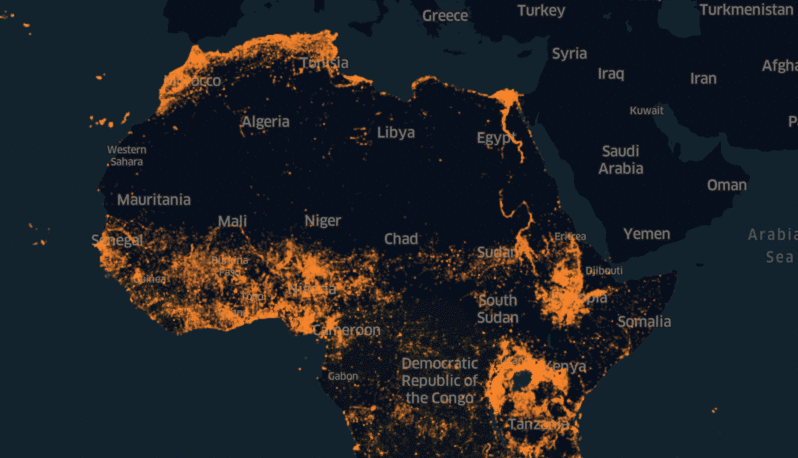In an unprecedented endeavor, Facebook’s AI team has rolled out an impressive mapping project covering nearly all of Africa, representing the home of 1.3 billion people. By merging satellite imagery with machine learning, this initiative goes beyond traditional mapping methods, offering a crucial tool for local governments, humanitarian organizations, and researchers alike. The significance of this project cannot be overstated—accurately mapping populations could revolutionize disaster response, healthcare provisioning, and resource allocation across the continent.
Bridging the Data Gap
Traditional demographic data often presents a general overview, leaving many communities underrepresented. For instance, you may know that a million people reside within a given area, but without precise data, the distribution remains vague. This is where Facebook’s project shines; the population density maps provide an intricate breakdown at a meter-specific level. The project essentially democratizes data, ensuring that every village and isolated community is accounted for.
- Accurate mapping can prevent the loss of lives during natural disasters by ensuring timely response efforts.
- Healthcare initiatives can use this data to identify vaccination sites effectively.
- It aids in infrastructure development by pinpointing areas that require investment.
The Technology Behind the Project
The methodology employed is as fascinating as its applications. Facebook’s AI team combines census data with high-resolution satellite imagery. The process begins with a significant reduction of Africa’s landscape; areas without any human structures are eliminated—making the task manageable.
Next, a region-specific algorithm identifies potential building sites, enhancing the accuracy of population distributions. As Facebook engineer James Gill succinctly puts it, “[…] once you know the building locations, you can skip the fields and forests and only allocate the population to the buildings.” This is a game-changer for demographic mapping, presenting detailed population distributions over 30-meter squares—an impressive leap from previous methodologies.
A Collaborative Effort
Facebook’s initiative is not a solitary endeavor; it engages multiple partners. Tyler Radford, executive director of the Humanitarian OpenStreetMap Team, expressed how vital this mapping is for their volunteer resources. “The maps from Facebook ensure we focus our volunteers’ time and resources on the places they’re most needed, improving the efficacy of our programs.” This coordination emphasizes the importance of collaboration in achieving common humanitarian goals.
Efficiency Meets Precision
The AI model’s efficiency is worth noting. With advancements in machine learning, the team has managed to simplify a complex task into a binary classification challenge. Rather than segmenting entire images, they can now pinpoint whether a building exists in a given snapshot using smaller, less computationally demanding neural networks. This strategic shift results in a higher success rate—out of 1,000 building patches, 996 were accurately identified. This remarkable accuracy is crucial, especially when dealing with underrepresented populations.
Why Does This Matter?
The motivation behind Facebook’s mapping project extends beyond technological curiosity or corporate responsibility. The company aims to identify areas with limited internet connectivity to provide them with better access. Although internet connectivity may seem secondary to life-saving resources, it offers a larger context for these communities—education, economic opportunities, and healthcare access hinge on connectivity.
Conclusion
As technologies continue to evolve, it is essential to harness them for social good. Facebook’s detailed population maps of Africa serve as a vital step toward achieving just that. This initiative not only demonstrates the power of AI in solving complex real-world issues but also highlights how technology companies can contribute positively to humanitarian efforts. Accurate mapping could pave the way for improved emergency responses, healthcare services, and social equity across a continent rich in diversity yet challenged by infrastructural limitations.
At **[fxis.ai](https://fxis.ai)**, we believe that such advancements are crucial for the future of AI, as they enable more comprehensive and effective solutions. Our team is continually exploring new methodologies to push the envelope in artificial intelligence, ensuring that our clients benefit from the latest technological innovations.
For more insights, updates, or to collaborate on AI development projects, stay connected with **[fxis.ai](https://fxis.ai)**.

